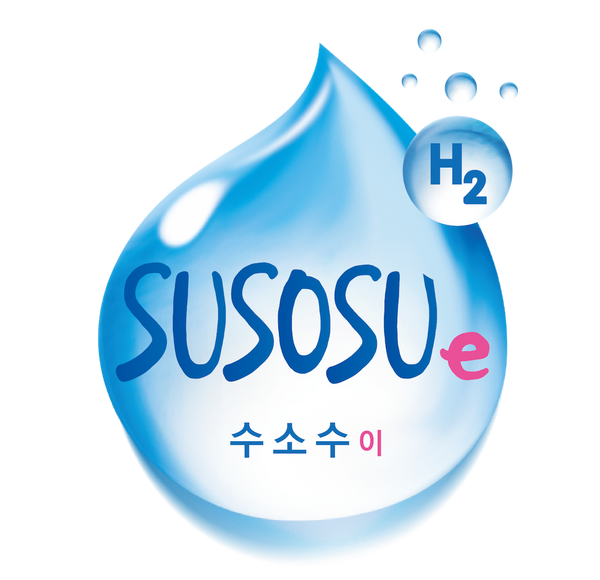
How Do Antioxidants Work?
Share
Some days don’t go by without mentioning antioxidants. With this in mind, it should come as no surprise that so many people are wondering how these molecules have such a significant impact on the body.
So how do antioxidants work anyway?
In this article, we’ll provide a simple explanation of the chemistry behind what these beneficial molecules do and explain how they promote health.
Antioxidants Chemistry
Learning about how antioxidants work means beginning at the molecular level.
All matter in this universe is composed of atoms. Within these atoms is a core containing protons and neutrons, along with some electrons revolving around that core.
Electrons carry a negative charge. Protons — found in the core — possess a positive charge.
Throughout the human body, we have a plethora of substances. Proteins, fats, and DNA are plentiful, formed by hundreds or even thousands of atoms that are connected to one another.
Chemical reactions are continuously occurring throughout the body in every organism, including humans, of course. These chemical reactions are essential for sustaining life, allowing metabolism to occur.
Through these chemical reactions, the larger molecules in the body are separated into smaller molecules. The reactions also allow smaller molecules to come together to form larger molecules.
Stabilizing these molecules is an essential part of the body’s functioning. To make a molecule stable, it needs to have the right number of electrons. Molecules that lose an electron at the wrong time generally results in it becoming a free radical.
Free radicals lack stability. They’re electrically charged molecules within cells that have the potential to react with other molecules, damaging them in the process.
This damage can happen to DNA, and it’s possible for free radicals to result in chain reactions. In turn, the molecules damaged by the free radicals can also become free radicals.
Antioxidants work to fix the issues surrounding free radicals. When a molecule loses an electron and becomes a free radical, an antioxidant molecule can provide the free radical with an electron. Thus, the antioxidant molecule neutralizes the free radical, ensuring it doesn’t result in more damage.
In essence, by donating electrons to free radicals, antioxidants are effectively preventing free radical damage from continuing. These unstable molecules are stopped in their tracks as the antioxidants neutralize them.
The Importance Of Antioxidants & Free Radicals — Wait, What?
Metabolism produces free radicals. And while free radicals are bad for the body, we still need some of them.
Now if we didn’t have antioxidants, the fact of the matter is that those free radicals would break down our bodies quite rapidly. However, even with this being the case, free radicals are essential for the body. Let me explain.
The body’s immune cells need free radicals. These cells are using free radicals to kill off bacteria that are attempting to infect the body.
While the body needs free radicals, a balance is necessary. An appropriate amount of free radicals paired with just enough antioxidants contributes to our health.
And if this balance is offset? The body has some serious trouble.
Oxidative stress is the result of free radicals outnumbers antioxidants found in the body. This is a serious issue that can damage molecules contributing to essential functions in the body. At times, cell death can happen as a result.
So what stress factors and lifestyle habits contribute to having too many free radicals? Keep these in mind as you try to avoid oxidative stress:
- Excess oxygen in the body.
- Not enough oxygen in the body.
- Too much iron, magnesium, zinc, or copper intake.
- Bacteria, fungi, or virus infections.
- Radiation — not limited to excessive sunbathing.
- Excessive polyunsaturated fatty acid consumption.
- High blood sugar levels.
- Toxins.
- Alcohol intake.
- Cigarette smoke.
- Air pollution.
Antioxidants Promoting Health
Many antioxidant foods are simple foods we eat daily. Thus, we usually have a constant flow of antioxidants entering our bodies, promoting good health.
Our bodies are also generating their own antioxidants. For example, the cellular antioxidant glutathione is one that our bodies are synthesizing on their own.
Since all forms of life have comparable defenses to fight against free radicals and oxidative damage they promote, just about all foods derived from plants and animals provide the body with free-radical neutralizing antioxidants.
A diet rich in antioxidants helps by giving us a plethora of antioxidants. In fact, eating lots of fruits and veggies is a practice found to help reduce oxidative stress and improve antioxidative defense for healthy nonsmokers.
Fish and meat products don’t contain nearly as many antioxidants as fruits and veggies. However, they’re still offering some antioxidants.
Some studies highlight that a Western diet actually gets a lot of its antioxidants from coffee. Even with this being the case, the reason is more than likely due to the typical person’s diet lacking antioxidant-rich foods.
While antioxidants contribute to our health, sometimes, less is better. Taking too many isolated antioxidants can produce toxic effects. Thus, this can result in more oxidative damage as opposed to offering preventative qualities.
With this being the case, it’s best to stay away from high-dose antioxidant supplementation. Foods and beverages rich in antioxidants are beneficial, but the supplements aren’t always a good option. Fortunately, there’s an excellent option that’s rapidly becoming the go-to for anyone looking to boost their antioxidant intake naturally.
Susosu Hydrogen Water Antioxidant Benefits
While supplements tend to offer too high of a concentration of antioxidants at times, hydrogen water offers antioxidant levels perfect for fighting free radical damage. This is where Susosu Water makes a world of difference.
Susosu Water Hydrogen Water is a molecular hydrogen antioxidant infusion that promotes free radical neutralization. Keeping your body healthy is easier with these convenient single-serving pouches, ensuring antioxidant benefits are easy to achieve on-the-go.
Interested in keeping your body as healthy as possible without adding sugar to your diet? Make Susosu Hydrogen water your go-to for free-radical fighting antioxidants!
